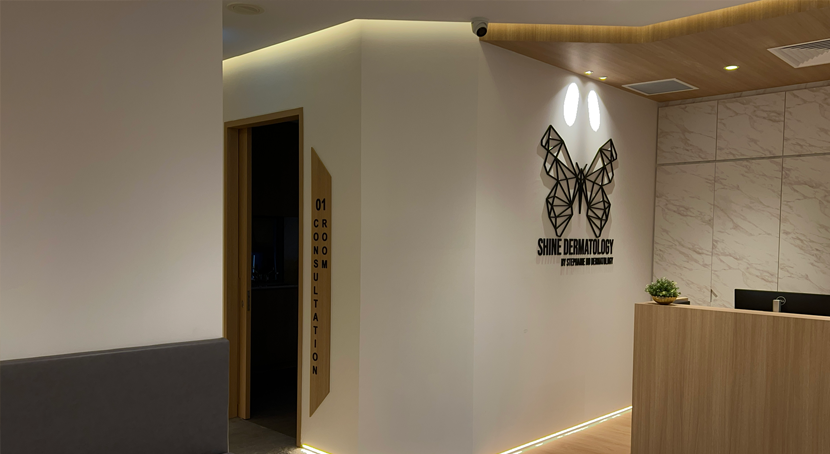What Are Skin Biopsies?
Skin biopsies are diagnostic procedures that involve removing small samples of skin for microscopic examination. They help identify conditions such as melanoma, psoriasis, eczema, or fungal infections. Types of biopsies include:
-
Shave Biopsy: For raised or superficial lesions.
-
Punch Biopsy: For deeper or inflamed skin conditions.
-
Excisional Biopsy: For complete removal of suspicious growths.
-
Incisional Biopsy: For partial sampling of large or complex lesions.
Our dermatologists choose the method based on lesion type, size, depth, and location to ensure accurate results with minimal tissue disruption.
Biopsy Techniques & Their Applications
Shave Biopsy
-
Mechanism: Surgical blade removes the lesion’s raised portion.
-
Best For: Seborrheic keratoses, superficial basal cell carcinomas, benign moles.
-
Protocol: 5-minute procedure, no stitches; heals in 1–2 weeks.
Punch Biopsy
-
Mechanism: Circular tool extracts a full-thickness skin sample.
-
Best For: Rashes (eczema, psoriasis), deeper skin infections, autoimmune conditions.
-
Protocol: Typically 1–2 sutures; results in 7–10 days.
Excisional Biopsy
-
Mechanism: Scalpel removes the entire lesion with margins.
-
Best For: Suspected melanomas, cysts, larger tumors.
-
Protocol: 15–30 minutes; sutures removed in 7–14 days.
Incisional Biopsy
-
Mechanism: Removes a portion of large lesions.
-
Best For: Complex ulcers, plaques, or lesions in sensitive areas.
-
Protocol: Sampled tissue only; minimal disruption to healthy tissue.
When Is a Skin Biopsy Recommended?
A biopsy may be advised if you experience:
-
Suspicious Moles: Asymmetry, irregular borders, colour changes, or rapid growth.
-
Chronic Rashes: Persistent skin irritation unresponsive to treatment.
-
Non-Healing Wounds: Ulcers or sores lasting more than four weeks.
-
Monitoring Needs: To track or confirm chronic inflammatory conditions.
Who Should Consider a Biopsy?
-
Patients with atypical moles or changing lesions
-
Individuals with persistent or recurrent rashes
-
Immunocompromised patients at higher risk for skin infections or malignancies
Procedure Timeline & Recovery
-
Shave/Punch Biopsy: Completed in one session; mild discomfort. Keep area dry for 24 hours.
-
Excisional Biopsy: May require minor suturing. Avoid strenuous activities for 48 hours.
-
Follow-Up: Results typically ready in 7–14 days.
Safety & Aftercare
Our dermatologists follow strict hygiene protocols and personalize aftercare instructions based on your biopsy type and skin condition:
-
Infection Risk: <1% with proper care; antibiotic ointment recommended.
-
Scarring: Typically minimal; silicone gel may improve healing.
-
Bleeding: Rare; gentle pressure can stop mild oozing.
-
General Care: Avoid sun exposure, scratching, or submerging the wound during healing.
FAQs
- Is the procedure painful?
No. Local anesthesia ensures comfort. Post-procedure soreness is minimal. - How long does it take?
5–15 minutes for most biopsies; up to 30 minutes for complex excisions. - Will there be a scar?
Most leave a small, flat mark. Scarring varies based on the biopsy type and healing. - How do I prepare?
Avoid blood thinners if possible. Inform us of any allergies or bleeding disorders. - Can I shower afterward?
Yes, after 24 hours. Use mild soap and keep the area dry. - When will results be ready?
Typically within 7–14 days. Urgent cases may be expedited. - Are biopsies safe for children?
Yes. We use child-friendly techniques and topical anesthetics. - What if results show cancer?
We will guide you through next steps, which may include surgery or specialist referrals. - Can I exercise?
Light activity is fine. Avoid strenuous activity until the area heals. - Can a biopsy spread cancer?
No. Biopsies are safe and do not cause cancer spread. - Is makeup allowed?
Avoid for 24–48 hours. Use clean, hypoallergenic products thereafter. - What can a biopsy diagnose?
Cancer, infections, autoimmune diseases, and chronic skin conditions. - Is a biopsy needed for acne or eczema?
Only if the presentation is unusual or unresponsive to standard treatments. - How accurate are results?
Over 95% accuracy, especially when reviewed by dermatopathologists.
Book a Consultation
Concerned about a skin change? Contact Shine Dermatology for expert evaluation and diagnostic clarity.



